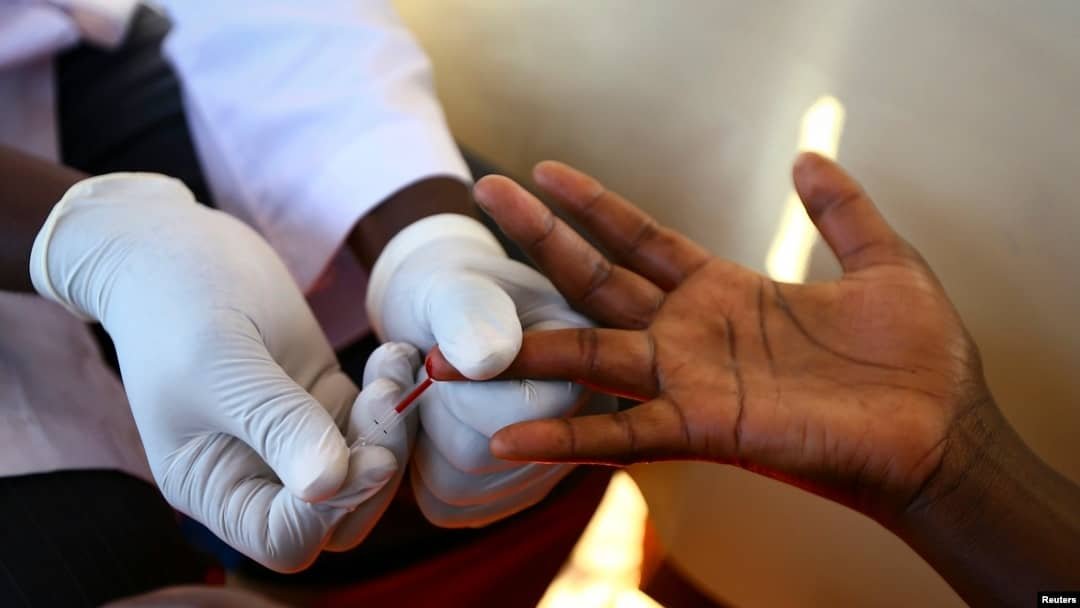The Gambia Family Planning Association Pushes for HIV Awareness Amidst Low Turnout
Taking blood for testing © Reuters
By Sulayman Njie
The Gambia Family Planning Association (GFPA), a NGO committed to advancing sexual and reproductive health rights since its inception in 1968, conducted an HIV and AIDS screening event on Saturday, 28th December 2024, at Banjul’s Family Planning Regional Chapter at Long Street. Despite the alarming rise in HIV cases among young Gambians and recent reports causing panic in Banjul, the turnout was unexpectedly low, with fewer than a dozen participants attending the event.
The GFPA, founded by Dr. Samuel J. Palmer, has been at the forefront of sexual and reproductive health education and services, particularly for young people. The association’s efforts encompass advocacy, counseling, and the provision of contraceptives, aiming to combat the spread of HIV/AIDS through informed choices and accessible healthcare.
Challenges Faced by the GFPA
Kassamanding Njie, a dedicated member of the GFPA core team, highlights the ongoing stigmatization of HIV patients as a significant barrier to testing and treatment. The isolation of patients when receiving antiretroviral therapy (ART) at hospitals further perpetuates this stigma. Njie stresses the need for integrating HIV services with other healthcare services to maintain patient confidentiality and reduce public speculation.
Moreover, Njie advocates for more social workers to provide in-home support, combating discrimination and bolstering the mental health and self-esteem of those living with HIV. She calls for enhanced government involvement, emphasizing, “It’s disheartening to see there’s no government budget for AIDS; relying solely on global funds risks leaving patients vulnerable if funding shifts as during the COVID-19 pandemic.”
Youth Empowerment and Education
Recognizing the pivotal role of young people in reversing the HIV epidemic, Yahya Touray, a Youth Service Provider at GFPA, implores youths to adopt the ABC approach—Abstinence, Being faithful, and Condom use—as preventive measures against HIV. Touray encourages those affected to adhere strictly to ART therapies to improve their health outcomes.
Adding perspective, Rabiatou Sowe, a final-year nursing student at the University of The Gambia who volunteers with the Red Cross, identifies fear as a reason behind the low turnout. She emphasizes the importance of testing and dispels myths that only sexually active individuals are at risk. “Awareness must be raised that HIV can be contracted through various means, including blood transfusions. Health workers should handle such sensitive tests with utmost care to prevent errors,” Sowe asserted.
Looking Forward
Horeja Jeng, another volunteer, stresses the necessity of strategic educational initiatives to foster behavioral change and uptake in HIV testing. The GFPA was advised to host future events in more accessible locations to alleviate societal stigma around entering family planning centers.
The pressing need for action by both community members and the government cannot be overstated. The GFPA reiterated their dedication to breaking down barriers and securing a safer, healthier future for Gambians, underscoring the importance of collective responsibility in tackling this public health challenge.
With HIV/AIDS continuing to pose a significant threat, especially to the youth, the GFPA’s efforts are more critical than ever in ensuring all individuals are equipped to make informed decisions about their sexual and reproductive health.

